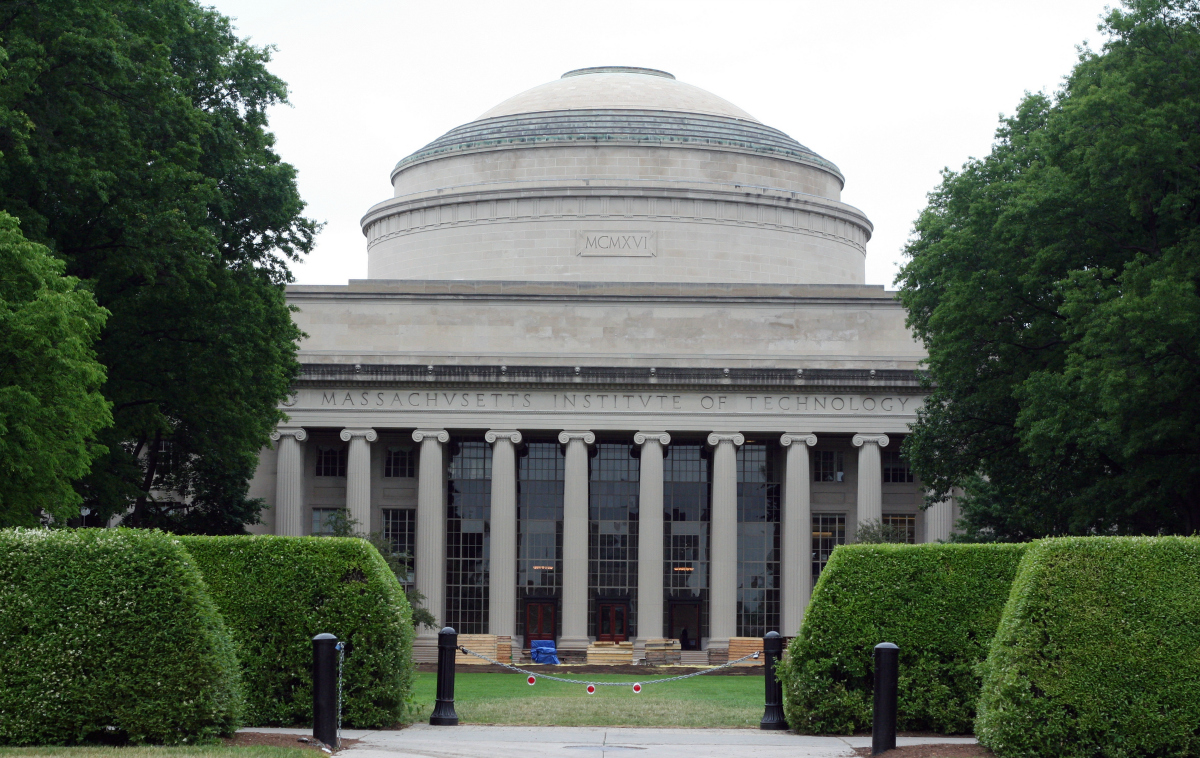MIT to Trump: Stop Citing Our Climate Research If You Don’t Understand It

MIT by Niall Kennedy on Flickr/Creative Commons
In his Rose Garden speech announcing he planned to pull the U.S. out of the Paris accord, it looks like Trump just sort of said whatever he thought would sound good—musing about how coal mining jobs were being stolen by China and other provably false claims.
He also, according to Reuters, cited study from researchers at MIT which, he said, showed that the Paris accord wouldn’t actually have much impact on the environment anyway. The pact would “produce a two-tenths of one degree Celsius reduction in global temperature by the year 2100,” Trump said, pinching his fingers so they were really close together. “Tiny, tiny amount,” he said.
Wrong, says MIT.
Officials at the Cambridge institution tell Reuters that Trump and his inner circle misunderstood the research. “If we don’t do anything, we might shoot over 5 degrees or more and that would be catastrophic,” John Reilly, MIT Joint Program on the Science and Policy of Global Change, tells the news service. He says the White House did not contact researchers to ask them to explain their findings.
He also may have been confusing the study for another one that’s now way out of date, the MIT Technology Review reports:
In fact, the “two-tenths of one degree” figure seems to have come from an earlier study by the same group conducted in 2014, before the Paris deal was finalized the following year. It didn’t include all the eventual commitments to cut emissions by participating nations, or assume any continuation of those pledges beyond 2030, says Erwan Monier, coauthor of the study and principal research scientist at MIT’s department of Earth, Atmospheric, and Planetary Sciences.
It appears, he says, that the White House cherry picked the lowest number they could find among studies that explored the impact of the climate accord.
The figure in the 2016 study, which incorporated all the pledges made by nations participating in the agreement, is actually between 0.6 and 1.1 °C. Just two degrees of warming above preindustrial conditions is considered a dangerous level of climate change, so scientists would consider more than half that amount to be a meaningful temperature reduction.
Additionally, the researchers came nowhere close to concluding from their findings that the Paris deal was not worth doing. In MIT News’s write up of the study, Monier was quoted as saying, “The Paris agreement is certainly a step in the right direction, but it is only a step.”
Asked about the discrepancy, a Trump official told reporters in a briefing after the announcement that, in fact, scientists agree with the president. “I think there is a consensus, not only in the environmental community, but elsewhere that the Paris agreement in and of itself will have a negligible impact on climate,” the official said, according to Reuters.

